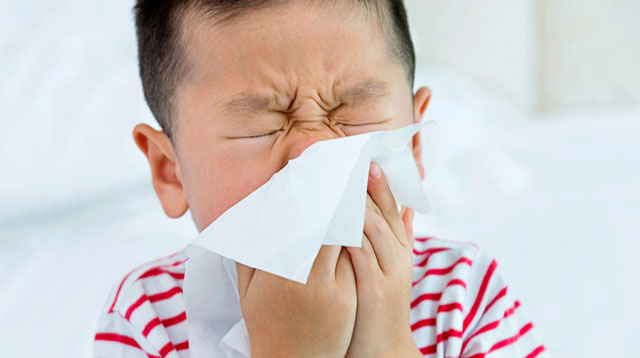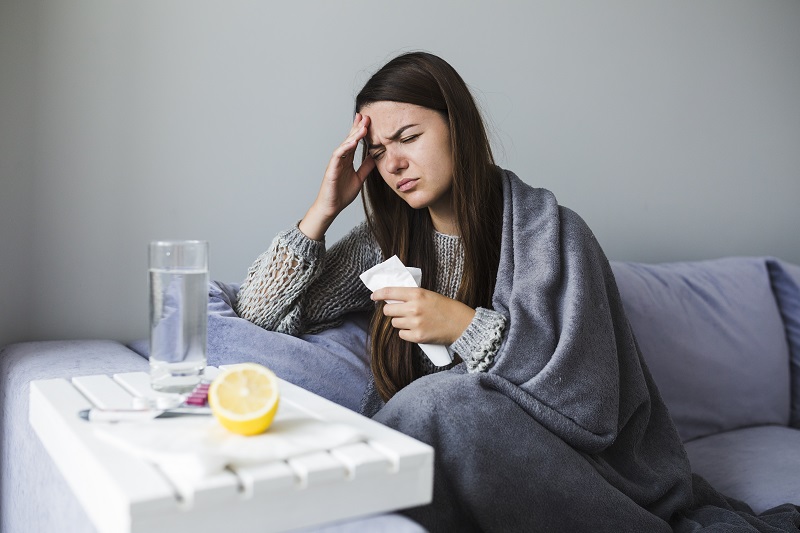With the start of the rainy days in the Philippines comes all sorts of ailments. And to help you out, your parents and grandparents will likely suggest a variety of home remedies. But which ones work and which ones are just old myths? Let’s start sorting them out.
Home remedies for colds

Since colds are the most common ailment you will encounter during the rainy months, they are also subject to a lot of common myths. One of these is that you will catch a cold when you get wet from the rain. Often, older people will advise you to avoid getting wet even if it is a slight drizzle to prevent colds.
In reality, there is no direct relationship between getting wet from the rain and catching a cold later on. Colds are caused by viruses, which means you can catch them anytime, even outside of the rainy season. On the flip side, you won’t get a cold even when getting wet if you don’t come into contact with someone who has it.
Chicken soup for colds
One of the common home remedies for colds is a warm bowl of chicken soup. While this has been a popular recommendation since time immemorial, it’s only recently that we are understanding how it works. According to certain studies, chicken soup has anti-inflammatory agents that help clear the upper respiratory tract. This makes the nasal fluids move faster and relieves your condition.

Additionally, certain ingredients in the soup facilitate faster recovery. These include:
- Garlic: This has antiviral properties that boost the body’s immune system and defeat the infection faster.
- Ginger: Fresh ginger is particularly effective against the human respiratory syncytial virus (HRSV) which is one of the causes of the common cold.
- Onions: Onions also have similar antiviral properties to the ones found in garlic.
Depending on the particular recipe you use, other ingredients also help boost your immune system. This also means that it doesn’t need to be chicken soup. Any hot soup with the right ingredients can help you get through that nasty cold.
The truth about vitamin C for colds
Another common home remedy for colds is to take in lots of vitamin C through drinking fruit juices and citrus fruits. However, you might be surprised at its efficacy. While vitamin C is well-known as a powerful antioxidant, there is conflicting evidence about its role in treating colds.
In a 2013 study, for instance, resources found out that taking in at least 200 mg of Vitamin C cuts the risk of getting colds by half for people with active lifestyles. However, it also indicated that the same cannot be said for average people taking in more vitamin C. The study notes that vitamin C’s effects on the common cold can vary depending on the general health of the patient.
This also suggests that, instead of taking in vitamin C specifically to treat a cold, you should have it become part of your regular diet. This helps build your resistance and lessen the severity of the symptoms. Additionally, you can expect a slightly lesser duration of the ailment.
Home remedies for dengue fever
:max_bytes(150000):strip_icc():format(webp)/dengue-fever-mosquito-5b68cdc846e0fb005045bb80.jpg)
Dengue is another common disease encountered during the rainy days in the country. Due to its prevalence, health authorities regularly issue alerts on how to protect yourself from it. However, that prevalence also give rise to several myths and misconceptions
One of these misconceptions is that there is already a commercial cure for the disease. In reality, what is available is a vaccine to protect yourself from the disease (Dengvaxia). Instead, what you can only do is manage symptoms until the body fully recovers from the infection. This is where the various home remedies come into play.
Myth: Papaya can cure dengue
One popular home remedy for dealing with dengue is drinking the juice extracted from papaya leaves. However, contrary to what some have claimed, the extract itself doesn’t cure dengue. What it does is to boost the platelet count of the patient, which is vital for restoring the body’s immune system.
You also should not rely on papaya leaves alone. To make it more effective, use it as a supplement for the medicines you are taking. The extract can be consumed as a juice, with you taking it twice a day for the duration of your sickness
Other home remedies
Aside from papaya, other home remedies that you can find for dengue include:
- Tawa-Tawa: This also helps increase platelet counts and decrease bleeding among patients, based on a study done by pharmacy students from the University of Santo Tomas.
- Makabuhay: This vine found in a large part of the country can help reduce the high fever experienced by patients.
- Orange juice: Citrus fruits, in general, contain plenty of vitamin C that helps increase platelet count. These work best when consumed in the morning.
- Basil: The variety of basil that grows in the country (holy basil) has antibacterial properties to ward off infections while you recover. To use, you boil the leaves into a tea and add black pepper. Consume daily while recovering.
Much like papaya leaves, these home remedies should not be considered as cures in themselves. Rather, these improve the efficacy of prescribed medications. Also note that, for severe cases, it would be best for the patient to seek medical help.
Home remedies for Athlete’s foot

As floods are common in many parts of the Philippines, Athlete’s foot is another ailment you will encounter a lot this season. The condition is characterized by flaky skin that eventually breaks into cracks and sores. Since the fungal infection is slightly contagious, it is important to immediately deal with it to avoid spreading it to other house members.
A common misconception about Athlete’s feet is that you can get it only by walking barefoot in infected areas. In reality, you can still contract it even if you wear shoes and socks if these get soaked for too long. It is also worth noting that the ailment does not disappear on its own. Instead, it can worsen if left untreated.
Garlic for your foot
Some might snicker at the thought of putting garlic on your foot as medication but it does have its merits. Several studies have shown that garlic has antifungal properties that can inhibit the growth of certain fungi associated with the disease. It should be noted that the concentration required for treatment using the active ingredients is higher than what is normally found in a clove of garlic.

To use this home remedy, crush three to four cloves of garlic and mix them in a basin of warm water. Soak your feet in the solution for 30 minutes. Do this twice daily for a week or until the symptoms subside. Note that this remedy does leave a strong smell on the foot, which might deter some. You can solve that by washing the feet with soap and water after the soaking.
Keep safe during the rainy days with these remedies
While many of these home remedies do not eliminate the ailments themselves, they help make the symptoms more bearable. As always, you should pair them with medication recommended by doctors. This will help you recover faster and stay healthy during this rainy season.

